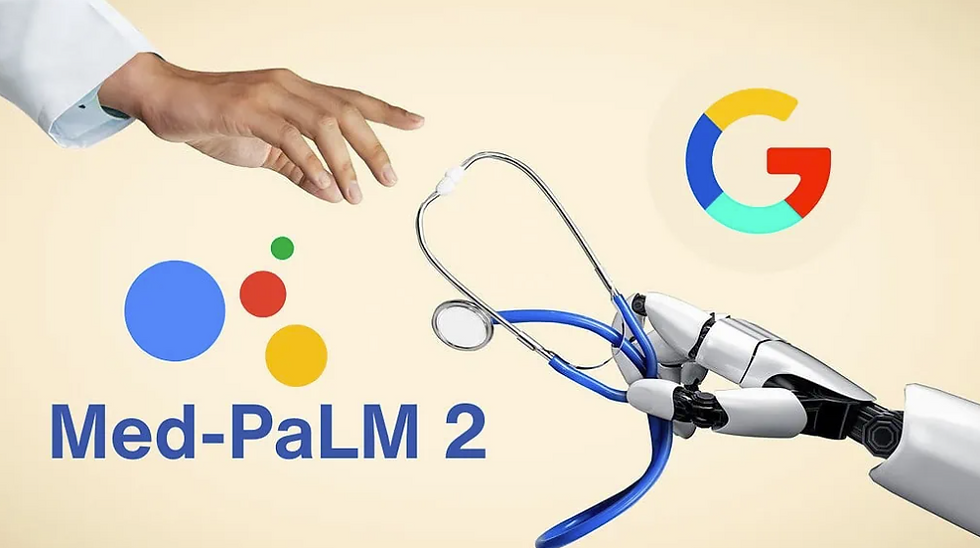Why Every Healthcare Practice Needs an AI Assistant in 2025
- sia699
- Feb 18
- 3 min read
The healthcare industry is undergoing rapid transformation, driven by technological advancements and increasing patient demands. In 2025, artificial intelligence (AI) assistants are no longer a luxury but a necessity for healthcare practices of all sizes. From streamlining administrative tasks to improving patient care, AI-powered tools help medical professionals work more efficiently while enhancing the overall healthcare experience.

The Growing Need for AI in Healthcare
Healthcare providers face numerous challenges, including staff shortages, administrative burdens, and rising patient expectations. AI assistants offer a solution by automating time-consuming tasks, optimizing workflows, and allowing healthcare professionals to focus on patient care. With AI-driven support, practices can reduce errors, improve efficiency, and ensure a better experience for both patients and providers.
Key Benefits of AI Assistants for Healthcare Practices
1. Automating Administrative Tasks
One of the biggest benefits of AI assistants is their ability to handle routine administrative duties, such as:
Appointment scheduling: AI-powered systems manage patient bookings, send reminders, and handle rescheduling.
Billing and insurance processing: AI automates medical coding and insurance claims, reducing errors and speeding up reimbursements.
Data entry and documentation: AI transcribes doctor-patient conversations and updates electronic health records (EHRs) in real-time.
By reducing administrative workload, AI assistants free up staff to focus on patient interactions. For example, AI-powered tools like Athenahealth and Kareo already streamline medical billing and coding, reducing errors and improving efficiency.
2. Enhancing Patient Communication
AI chatbots and virtual assistants provide 24/7 patient support, answering common medical inquiries, assisting with appointment bookings, and sending medication reminders. This ensures that patients receive timely responses without adding to the workload of healthcare staff. Chatbots and virtual assistants, such as those integrated into platforms like DrChrono, can answer patient queries, send medication reminders, and even provide post-visit follow-ups.
3. Improving Diagnostic Accuracy
AI-powered tools analyze medical data and assist doctors in making faster, more accurate diagnoses. AI-driven imaging software, for instance, can detect abnormalities in X-rays and MRIs with high precision, helping radiologists and physicians identify conditions earlier. Tools like IBM Watson Health and Google DeepMind use machine learning to assist doctors in diagnosing diseases, predicting patient outcomes, and recommending treatment options.
4. Personalized Treatment Plans
AI systems analyze patient history, genetic data, and lifestyle factors to recommend personalized treatment plans. This leads to better health outcomes by ensuring treatments are tailored to individual needs.
5. Streamlining Workflows for Medical Staff
AI optimizes resource allocation by analyzing patient flow, predicting peak hours, and helping staff manage workloads more efficiently. This reduces burnout among healthcare professionals and ensures smoother operations. For instance, platforms like Epic Systems and Cerner already use AI to simplify documentation and reduce the time spent on paperwork.
Real-World Applications of AI Assistants in Healthcare
Many healthcare facilities are already seeing the benefits of AI-powered assistants:
Hospitals: AI triage systems assess patient symptoms before they arrive at the ER, reducing wait times.
Private Practices: AI handles scheduling, patient follow-ups, and administrative work, allowing doctors to focus on care.
Telemedicine Providers: AI-driven chatbots conduct initial consultations and collect patient data before virtual visits.
Looking Ahead: The Future of AI in Healthcare
By 2025, AI assistants will continue to evolve, integrating with wearable health devices, enhancing predictive analytics, and supporting remote patient monitoring. As AI technology advances, healthcare practices that adopt these tools will improve efficiency, reduce costs, and provide better patient outcomes.
With the increasing digitization of healthcare, data security and compliance have become critical concerns. AI assistants can help healthcare practices stay compliant with regulations like HIPAA by monitoring data access, detecting potential breaches, and ensuring secure communication. Tools like NextGen Healthcare already incorporate AI-driven security features to protect patient information.
Conclusion
AI assistants are transforming healthcare by automating tasks, improving diagnostics, and enhancing patient experiences. Every healthcare practice, whether small clinics or large hospitals, can benefit from integrating AI into their daily operations. As the industry moves toward more technology-driven solutions, AI assistants will be essential for staying competitive and delivering high-quality care.
Learn more:





Commentaires